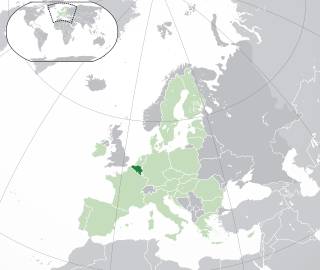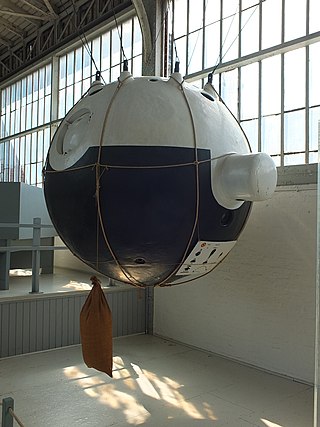
Belgium, officially the Kingdom of Belgium, is a country in Northwestern Europe. The country is bordered by the Netherlands to the north, Germany to the east, Luxembourg to the southeast, France to the southwest, and the North Sea to the northwest. It covers an area of 30,528 km2 (11,787 sq mi) and has a population of more than 11.5 million, making it the 22nd most densely populated country in the world and the 6th most densely populated country in Europe, with a density of 376/km2 (970/sq mi). Belgium is part of an area known as the Low Countries, historically a somewhat larger region than the Benelux group of states, as it also included parts of northern France. The capital and largest city is Brussels; other major cities are Antwerp, Ghent, Charleroi, Liège, Bruges, Namur, and Leuven.

Flanders is the Dutch-speaking northern portion of Belgium and one of the communities, regions and language areas of Belgium. However, there are several overlapping definitions, including ones related to culture, language, politics, and history, and sometimes involving neighbouring countries. The demonym associated with Flanders is Fleming, while the corresponding adjective is Flemish. The official capital of Flanders is the City of Brussels, although the Brussels-Capital Region that includes it has an independent regional government. The powers of the government of Flanders consist, among others, of economic affairs in the Flemish Region and the community aspects of Flanders life in Brussels, such as Flemish culture and education.

Walloons are a Gallo-Romance ethnic group native to Wallonia and the immediate adjacent regions of France, Germany, Luxembourg and the Netherlands. Walloons primarily speak langues d'oïl such as Belgian French, Picard and Walloon. Walloons are historically and primarily Roman Catholic.

The United Kingdom of the Netherlands is the unofficial name given to the Kingdom of the Netherlands as it existed between 1815 and 1839. The United Netherlands was created in the aftermath of the Napoleonic Wars through the fusion of territories that had belonged to the former Dutch Republic, Austrian Netherlands, and Prince-Bishopric of Liège in order to form a buffer state between the major European powers. The polity was a constitutional monarchy, ruled by William I of the House of Orange-Nassau.

The politics of Belgium take place in the framework of a federal, representative democratic, constitutional monarchy. The King of the Belgians is the head of state, and the prime minister of Belgium is the head of government, in a multi-party system. Executive power is exercised by the government. Federal legislative power is vested in both the government and the two chambers of parliament, the Senate and the Chamber of Representatives. The federation is made up of (language-based) communities and (territorial) regions. Philippe is the seventh and current King of the Belgians, having ascended the throne on 21 July 2013.

Wallonia, officially the Walloon Region, is one of the three regions of Belgium—along with Flanders and Brussels. Covering the southern portion of the country, Wallonia is primarily French-speaking. It accounts for 55% of Belgium's territory, but only a third of its population. The Walloon Region and the French Community of Belgium, which is the political entity responsible for matters related mainly to culture and education, are independent concepts, because the French Community of Belgium encompasses both Wallonia and the bilingual Brussels-Capital Region.

The Kingdom of Belgium is divided into three regions. Two of these regions, Flanders and Wallonia, are each subdivided into five provinces. The third region, Brussels, does not belong to any province and nor is it subdivided into provinces. Instead, it has amalgamated both regional and provincial functions into a single "Capital Region" administration.

The Flemish Movement is an umbrella term which encompasses various political groups in the Belgian region of Flanders and, less commonly, in French Flanders. Ideologically, it encompasses groups which have sought to promote Flemish culture and the Dutch language as well as those seeking greater political autonomy for Flanders within Belgium. It also encompassed nationalists who seek the secession of Flanders from Belgium, either through outright independence or unification with the Netherlands.

In Belgium, the French Community refers to one of the three constituent constitutional linguistic communities. Since 2011, the French Community has used the name Wallonia-Brussels Federation, which is controversial because its name in the Belgian constitution has not changed and because it is seen as a political statement. The name "French Community" refers to Francophone Belgians, and not to French people residing in Belgium. As such, the French Community of Belgium is sometimes rendered in English as "the French-speaking Community of Belgium" for clarity, in analogy to the German-speaking Community of Belgium.

There are 27 municipalities with language facilities in Belgium which must offer linguistic services to residents in Dutch, French, or German in addition to their single official languages. All other municipalities – with the exception of those in the bilingual Brussels region – are monolingual and only offer services in their official languages, either Dutch or French.

Belgian nationalism, sometimes pejoratively referred to as Belgicism, is a nationalist ideology. In its modern form it favours the reversal of federalism and the creation of a unitary state in Belgium. The ideology advocates reduced or no autonomy for the Flemish Community who constitute Flanders, the French Community of Belgium and the German-speaking Community of Belgium who constitute Wallonia and the Brussels-Capital Region which is inhabited by both Walloons and Flemings, and the dissolution of the regional counterparts of each ethnic group within Belgium.

The Kingdom of Belgium has three official languages: Dutch (Flemish), French, and German.

The National Fund for Scientific Research (NFSR) was once a government institution in Belgium for supporting scientific research until it was split into two separate organizations:
The Belgacom Fund, is a Belgian fund created within the King Baudouin Foundation in 1999 for a period of three years, which promotes dialogue between citizens and local authorities. The fund provided financial support to either local authorities or those of Social Services in Wallonia, Flanders, and in Brussels (region) that improve the dialogue between the Belgian citizen and local authorities.
The Royal Institute for the Sustainable Management of Natural Resources and the Promotion of Clean Technology is a Belgian non-profit organization, which was founded on 11 July 1994. Prince Laurent of Belgium is the head of the institute.
Science and technology in Flanders, being the Flemish Community and more specifically the northern region of Belgium (Europe), is well developed with the presence of several universities and research institutes. These are strongly spread over all Flemish cities, from Kortrijk and Bruges in the Western side, over Ghent as a major university center alongside Antwerp, Brussels and Leuven to Hasselt and Diepenbeek in the Eastern side.
The partition of Belgium is a hypothetical situation, which has been discussed by both Belgian and international media, envisioning a split of Belgium along linguistic divisions, with the Flemish Community (Flanders) and the French-speaking Community (Wallonia) becoming independent states. Alternatively, it is hypothesized that Flanders could join the Netherlands and Wallonia could join France or Luxembourg.

State reform, in the context of Belgium, is the ongoing process of seeking and finding constitutional and legal solutions to the problems and tensions in the different segments of the Belgian population, mostly between the Dutch-speakers of Flanders and the French-speakers of Wallonia. In general, Belgium has evolved from a unitary state to a federal state with communities, regions, and language areas.

The Manifesto for Walloon Culture, was published in Liège on 15 September 1983 and signed by seventy-five "key figures in artistic, journalistic and university circles" of Wallonia.

The Belgian provincial, municipal and district elections of 2012 took place on 14 October. As with the previous 2006 elections, these are no longer organised by the Belgian federal state but instead by the respective regions: